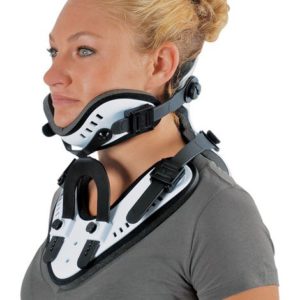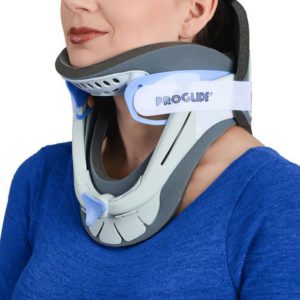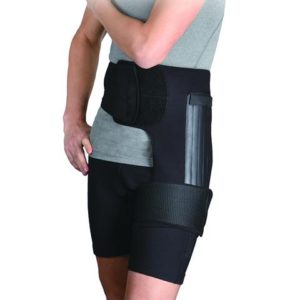
Welcome to the store
Orthopedic devices can be beneficial for individuals who experience musculoskeletal injuries, conditions, or functional limitations. They can be used by people of all ages, from children to older adults. Here are some examples of individuals who may benefit from orthopedic devices:
Athletes: Athletes who engage in sports or physical activities are prone to various injuries, such as sprains, strains, fractures, or ligament tears. Orthopedic devices like knee braces, ankle braces, or wrist braces can provide support, stability, and protection during sports activities, aiding in injury prevention and recovery.
Individuals with Chronic Conditions: People with chronic orthopedic conditions, such as osteoarthritis, rheumatoid arthritis, or degenerative disc disease, may benefit from orthopedic devices. These devices can help manage pain, support joints, and improve mobility, enhancing their overall quality of life.
Post-Surgical Patients: Individuals who undergo orthopedic surgeries, such as joint replacements, spinal surgeries, or ligament repairs, often require orthopedic devices during their recovery. Devices like braces, slings, or immobilizers can provide support, protect surgical sites, and promote proper healing.
Workers with Physical Demands: People who perform physically demanding tasks, such as construction workers, factory workers, or manual laborers, may require orthopedic devices to protect their joints, reduce strain, and prevent work-related injuries. Back braces, knee braces, or wrist braces can offer support and stability in demanding work environments.
Elderly Individuals: As individuals age, they may experience age-related orthopedic conditions, such as osteoporosis, joint degeneration, or balance issues. Orthopedic devices like canes, walkers, or hip braces can assist in mobility, improve stability, and reduce the risk of falls or fractures.
Individuals with Injuries: People who sustain acute injuries, such as fractures, sprains, or dislocations, may require orthopedic devices to support and stabilize the affected area during the healing process. Casting, splints, or braces can aid in immobilization, promote proper alignment, and facilitate recovery.
It’s important to note that the need for orthopedic devices should be assessed and recommended by healthcare professionals, such as orthopedic specialists, physical therapists, or occupational therapists. They can evaluate the individual’s condition, functional limitations, and specific needs to determine the appropriate orthopedic device and provide guidance on its proper usage.
New Products
-
 Ottobock Cervical SOM Orthosis$195.00
Ottobock Cervical SOM Orthosis$195.00 -
 OPTEC USASKU:PG172CO$90.00
OPTEC USASKU:PG172CO$90.00 -
Product on sale
 OR-HP008-XL-ROriginal price was: $139.99.$68.97Current price is: $68.97.
OR-HP008-XL-ROriginal price was: $139.99.$68.97Current price is: $68.97. -
Product on sale
 OR-HP008-XL-LOriginal price was: $139.99.$68.97Current price is: $68.97.
OR-HP008-XL-LOriginal price was: $139.99.$68.97Current price is: $68.97. -
Product on sale
 OR-HP008-L-ROriginal price was: $139.99.$68.97Current price is: $68.97.
OR-HP008-L-ROriginal price was: $139.99.$68.97Current price is: $68.97. -
Product on sale
 OR-HP008-L-LOriginal price was: $139.99.$68.97Current price is: $68.97.
OR-HP008-L-LOriginal price was: $139.99.$68.97Current price is: $68.97. -
Product on sale
 OR-HP008-M-ROriginal price was: $139.99.$68.97Current price is: $68.97.
OR-HP008-M-ROriginal price was: $139.99.$68.97Current price is: $68.97. -
Product on sale
 OR-HP008-M-LOriginal price was: $139.99.$68.97Current price is: $68.97.
OR-HP008-M-LOriginal price was: $139.99.$68.97Current price is: $68.97. -
Product on sale
 OR-HP008-S-ROriginal price was: $139.99.$68.97Current price is: $68.97.
OR-HP008-S-ROriginal price was: $139.99.$68.97Current price is: $68.97.